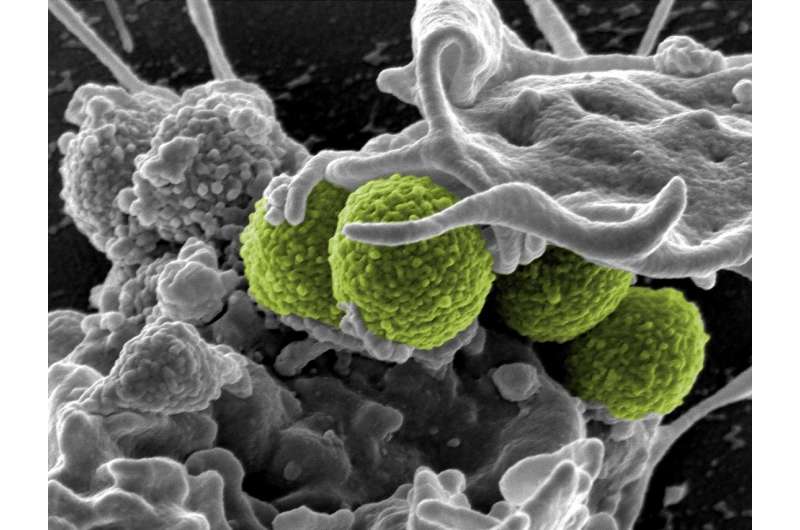Bacterial superantigens turn our immune cells to the dark side

A subpopulation of immune cells that normally fend off pathogens can turn against the host during certain infections, a new study publishing on June 20 in the open access journal PLOS Biology reveals.
The researchers led by Dr. Mansour Haeryfar at Western University's Schulich School of Medicine & Dentistry, Canada, in collaboration with researchers from France, Australia and the United States, found for the first time that these immune cells, called mucosa-associated invariant T (MAIT) cells, can mount a rapid and robust inflammatory response that may contribute to severe organ damage or even death due to infections that lead to toxic shock syndrome.
Toxic shock syndrome is a life-threatening inflammatory response brought on by exposure to bacterial superantigens, which are toxins harbored and secreted by certain common bacteria, namely Staphylococcus ("staph") and Streptococcus ("strep") bacteria. Counterintuitively, it is not the bacteria or its toxins that make toxic shock fatal, but rather the overzealous inflammatory response triggered and perpetuated by the immune system.
Researchers used both animal models and human cells to demonstrate the hyper-responsiveness of MAIT cells to systemic exposure to bacterial superantigens. The team also demonstrated that as MAIT cells responded to superantigens, they also began to develop signs of exhaustion and failure to participate in antimicrobial host defense. This exhaustion may lead to immunosuppression, which can also have fatal consequences due to increased susceptibility to secondary, opportunistic infections.
"In this context, MAIT cells are actually disease-causing as opposed to protective," said Haeryfar. "We have shown that MAIT cells are the most powerful source of an inflammatory mediator called interferon-γ, thus likely contributing to morbidity associated with toxic shock syndrome and similar superantigen-mediated illnesses."
"Based on our findings, we propose that timely and efficient therapies that target MAIT cells will likely benefit the patients by preventing uncontrolled inflammation and also by relieving immunosuppression," said Haeryfar.
More information: Shaler CR, Choi J, Rudak PT, Memarnejadian A, Szabo PA, Tun-Abraham ME, et al. (2017) MAIT cells launch a rapid, robust, and distinct hyperinflammatory response to bacterial superantigens and quickly acquire an anergic phenotype that impedes their cognate antimicrobial function: Defining a novel mechanism of superantigen-induced immunopathology and immunosuppression. PLoS Biol 15(6): e2001930. doi.org/10.1371/journal.pbio.2001930

















